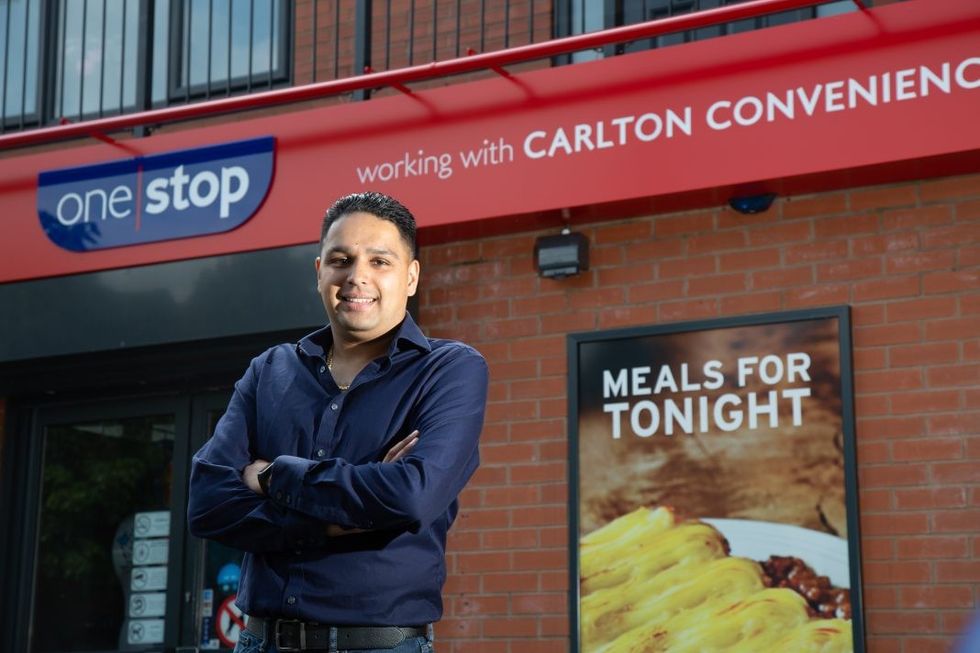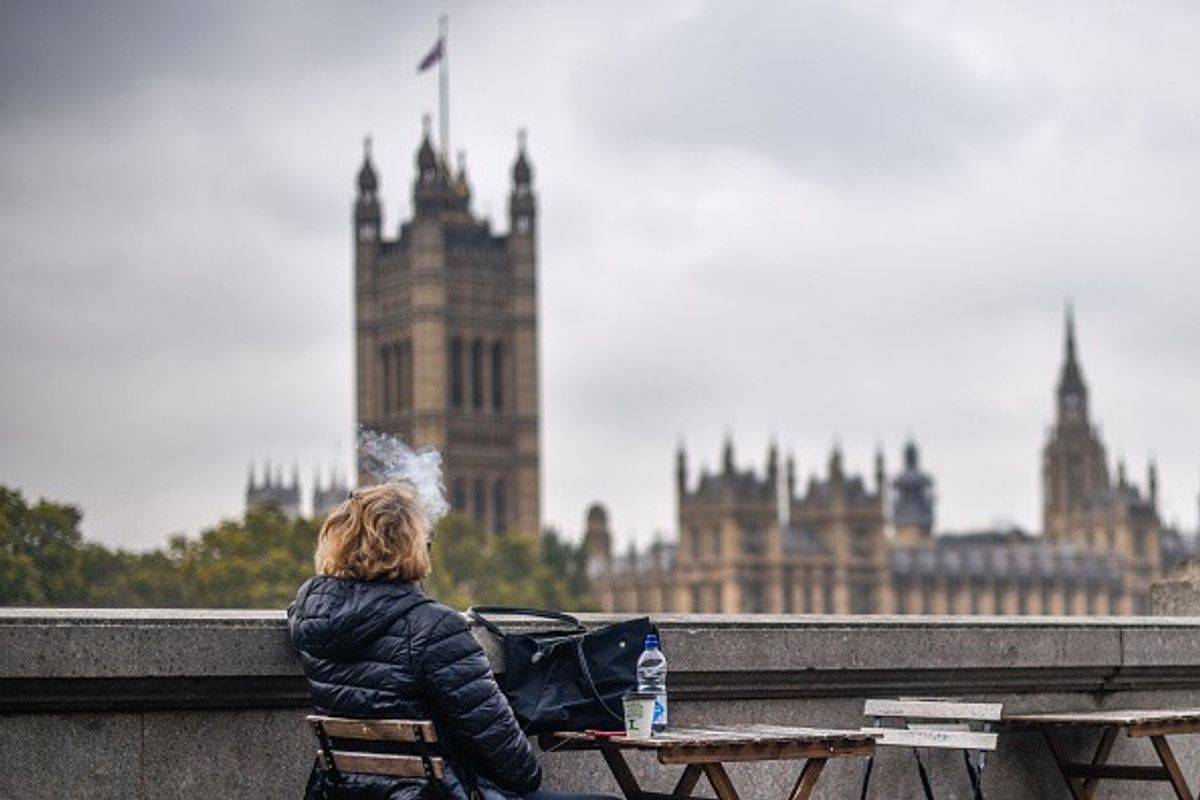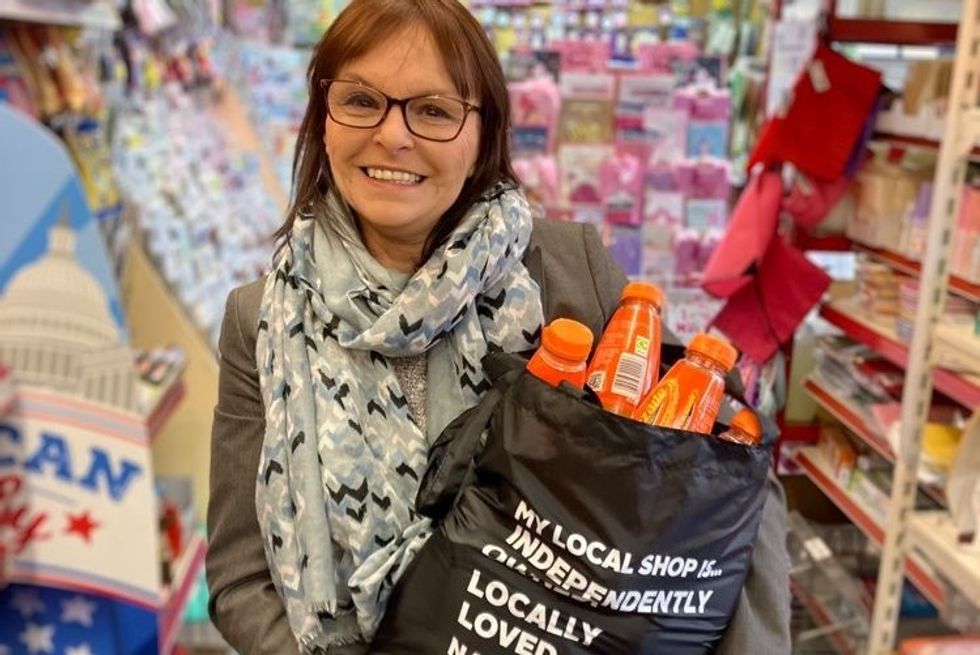As Tobacco and Vapes Bill makes its way into parliament with promises of a healthier smokefree UK, convenience retailers across the country are anxious, fearing an impending storm of challenges on the horizon, finds Asian Trader.
Ignoring the outcry from small business owners and consumer freedom advocates alike, Labour introduced the Tobacco and Vapes Bill in the parliament on Nov 5.
Reviving the bill from previous Conservative government, Labour has made the legislation even more stifling with a couple of additional measures, such as looking into extending smoke-free places and introducing a licensing scheme for tobacco and vape retailers.
The core of the bill is a ban on selling "tobacco products, herbal smoking products, and cigarette papers to anyone born on or after January 1, 2009”.
Notably, the focus is on selling here, thereby placing the entire burden of enforcement on retailers with no repercussions on the “under-age adult” asking or rather coercing for a cig.
Touted as a world-leading idea, the bill's intentions are noble, but in practice, it is expected to impose severe operational challenges for store owners.
Like in 2040, it will be still legal to sell cigarettes to 32-year-olds but a retailer will face a criminal offence for selling the same to 30-year-olds, probably facing the customer wrath too on being denied the sale.
According to the proposals, after Jan 1, 2027, each cigarette or tobacco product sale will come with the mandatory checking of a government-approved ID (namely passport, UK driving licence, a driving licence issued by any of the Channel Islands or the Isle of Man, European Union photo card driving licence, or an identity card issued by the Proof of Age Standards Scheme and bearing its hologram) to make sure the buyer is “born after 2009”.
Asian Trader reached out to some of the leading convenience retailers across the UK, and the air was thick with frustration and despair, majorly over the fact that the government is pressing ahead with the bill, ignoring their pleas.
Highlighting the bill’s daunting implications, retailer Neil Godhania, who owns and runs Neil’s Premier in Peterborough, heavily criticised the move, saying that such a law, if it comes into effect, will put a multi-level burden on retailers.

He said, “The ban requires that stores verify each customer’s birth year to ensure they’re not part of the restricted generation, adding an extra layer of complexity to existing age verification.”
This increased scrutiny will demand rigorous staff training, higher operational costs, and a heightened risk of penalties—all of which erode the quality of customer service and increase stress on staff, he explained.
Not only are these restrictions impractical, but they also risk exacerbating an already tense retail environment.
According to ACS 2024 Crime Report, most (87 per cent) colleagues in convenience stores have faced verbal abuse over the last year while enforcing the law on age restricted sales has been named among the top three triggers for abuse.
With customer abuse cases at record high levels, Godhania fears that the bill’s requirements will only escalate confrontations.
Elsewhere in Croydon, Nisa retailer Benedict Selvaratnam (also known as Ben) is having similar concerns about this new added layer of complexity. Sharing Godhania’s concern, Ben also fears both customers’ backlash as well as delay in service at the till.
Ben said, "The added layer of complexity will slow down transactions at the point of sale, leading to potential delays, especially in busy stores like ours where every minute counts."
Retailers like Bobby Singh, who manages BB Nevison Superstore and Post Office in Pontefract, fears that these measures will force them into adversarial roles with customers.
Sharing his apprehensions, Singh told Asian Trader, “Through such laws, the government is basically expecting us to question grown adults on their choices.
"We will be questioning grown up responsible adults on their freedom of choice and this is just going to cause confrontation for me and my teams.”
Across borders in Wales, independent retailer Trudy Davies, who runs Woosnam and Davies News in Llanidloes, is worried about what she is going to do if this bill becomes law. She shares her apprehension over the strain the law would impose on her already overburdened staff.
Davies told Asian Trader, "When adult customers are asked for id - it then becomes a ‘flashpoint’ for disruptive purchasers whom the store staff will have to deal with. Their anxiety levels and stress with just daily things they deal with is enough for them.
"Now with more and more put onto them, particularly ‘policing’ as part of their job, it will be more worrisome for us business owners.
"Moreover, it is unimaginable how each cigarette or basic tobacco product will require an ID check every single time, putting other customers behind in line waiting to be served.”
Boost to illegal tobacco
Such age-restrictive ban might be a challenge for law-abiding stores though the move seems a blessing for illegal traders.
As perfectly summed by Davies, traders of illicit and contraband tobacco products are now eagerly looking forward to the ban coming in, “rubbing their hands together as we speak”.
A look at a recent research carried out by the Tobacco Manufacturers’ Association shows that most (80 per cent) UK smokers have bought illicit tobacco in the past year while the number of smokers that had bought illicit tobacco increased 6 per cent on the previous year.
Clearly, buying a fake or a contraband cigarette is neither unfamiliar nor new for smokers.
With weak penalties for perpetrators, poor border controls, low arrest rates and tobacco taxes creating disparity between neighbouring countries, it’s a problem that’s only set to grow. And the proposed ban is only expected to add wings to it.
Singh said, “The UK will see a boom in illicit trade, if such a ban comes into effect. We all know that illicit traders do not care about compliance or any kind of responsibility. Such a ban is only going to make things harder for convenience stores.
"People are anyway going to consume cigarettes if they want to, and they will get them from illicit sources.”
Sharing the concern that the ban will unintentionally fuel the already significant illegal tobacco market, Ben told Asian Trader, "Restricted legal access may drive younger generations to seek illicit sources, impacting legitimate retailers like us who are already affected by illegal trade competition.
"This situation could exacerbate the problem of counterfeit and untaxed tobacco flooding the market, posing further risks for community health and retail safety."
The knock-on effects don’t stop there.
Retailer Priyesh Vekaria, a One Stop retailer in Manchester, highlighted the risk that illegal trade funds organized crime, "The key concerns for me are that illicit trade and grey markets will boom.
“The bigger concern is that often illicit trade and grey markets are linked to and fund organised crime and this could pose much more serious implications to communities, if this is not carefully and practically enforced."
Dear Government
It is clear that implementation of the Tobacco and Vapes Bill, if it comes into effect, will require retailers to make significant changes in their businesses.
At this critical juncture, the government is being called on to support convenience retailers in implementing any proposed changes.
Retail bodies like the Association of Convenience Stores (ACS) are urging for clear guidance and public awareness efforts to ease the transition.
They are also stressing that the onus should be on policymakers to equip retailers with resources rather than leaving them to bear the brunt of implementation alone.
As Vekaria explains, “Advocating health in the community is key to being a responsible retailer.
"The government needs to own their decisions and support implementation with due diligence and consideration for the businesses who are facing customers at the grass root level.

“Support us and work with us, understand our concerns to help us to implement your legislative changes,” he added.
Vekaria’s call for support is echoed by other retailers too, both for support and killing illegal trade.
Ben said, "I would urge the government to consider support measures for retailers as they roll out this ban. This could include investment in training, technology, and clear guidelines.
“Additionally, the government should prioritise combating the illegal tobacco trade with stricter enforcement and increased resources. Without tackling the illegal market, the impact of this ban might undermine its intended health benefits."
Furthermore, the bill will also include powers to introduce a licensing scheme for retailers to sell tobacco, vape and nicotine products in England, Wales and Northern Ireland.
ACS chief James Lowman warned that this scheme, introduced without prior consultation, risks pushing legitimate businesses out simply based on location, impacting investment and growth in the sector.
“We now need proper discussion of the details as regulations are drafted, or we fear that this legislation will significantly impact investment, growth and service provision in our sector,” he said.
Unnecessary, impractical, delusional
In 2011, 20 per cent of UK adults smoked, according to the Office for National Statistics (ONS) while in 2023, just fewer than 12 per cent did so. Fewer than one in 10 young adults in the UK smoked cigarettes in 2023 - down from a quarter of 18-24-year-olds 12 years earlier.
Overall, there has been a shift of mindset among people and the change can be seen at convenience stores too.
And this brings us to a fundamental question: with smoking rates already on a steady decline, is such a complex ban even required?
Singh feels such a ban is “not practical or real, not even required.” as people themselves are getting more health conscious and smoking rate is reducing massively.
“People are already making better choices but to suppress their freedom is not the right answer here,” he said, adding that rising the age from 18 to 21 would have made more sense.
Singh’s message to the government is blunt but poignant: “Put resources into education. Bringing awareness in the masses will and is showing better results as smokers are reducing.”
Retailers across the UK are speaking with one voice. They want the government to understand the practical realities and to respect the efforts they already make to promote responsible retail.
As Davies succinctly puts it, “Government needs to stop thinking only on the lines of ‘Ban, Ban, Ban’. Please, go to your local shop and stand in our staff's shoes for a few hours.
"Those people on the shop floor who have to handle your new legislation on a daily basis should be included in any discussions before laws are made.”
Clearly, if Labour’s goal is truly to create a healthier UK, then it needs to listen, understand and collaborate with convenience sector; maybe even refine and realistically re-imagine the otherwise seemingly lopsided bill to make it more practical and impactful?



 Retailer Bobby Singh
Retailer Bobby Singh 
 Retailer Trudy Davies
Retailer Trudy Davies